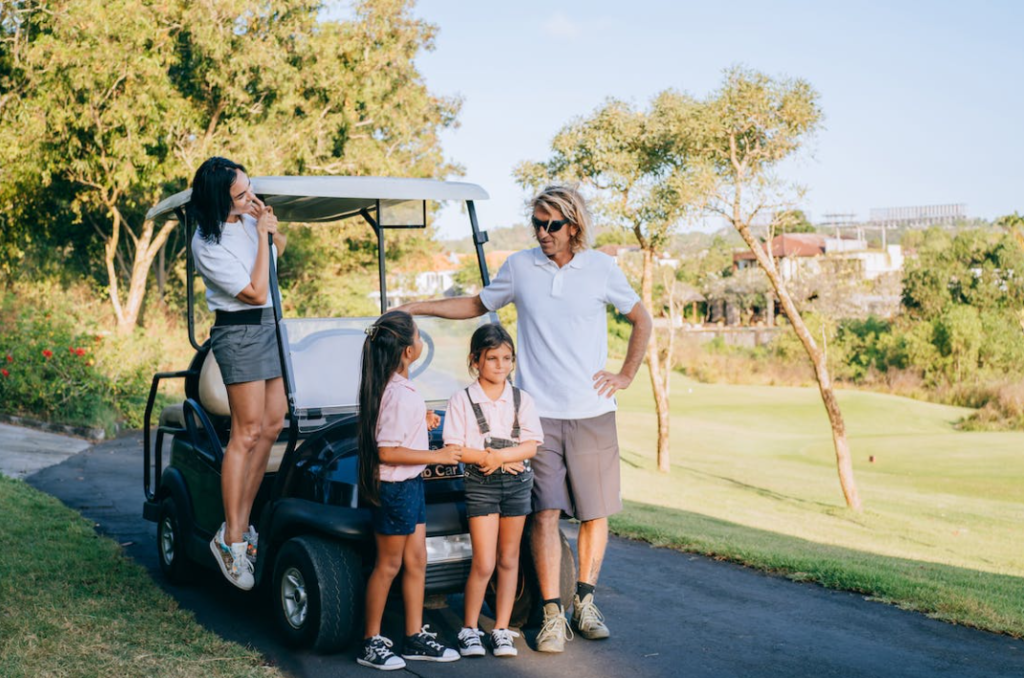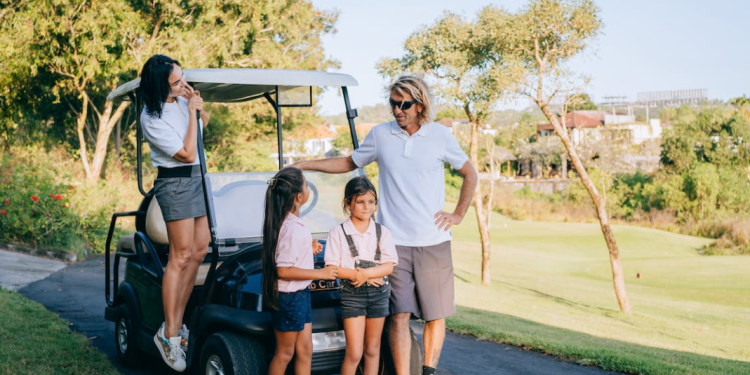Introduction
Family camping is a wonderful way to bond with loved ones, disconnect from the hustle and bustle of daily life, and immerse oneself in the beauty of nature. However, a successful camping trip requires proper gear and preparation to ensure comfort, safety, and enjoyment for everyone involved. In this article, we’ll discuss essential gear and campsite tips for family camping adventures, equipping you with the knowledge and tools to make the most of your outdoor experience.
Choosing the Right Gear
When preparing for a family camping trip, selecting the right gear is crucial for a comfortable and enjoyable experience. Start with a quality tent that provides adequate space, durability, and weather resistance to accommodate your family’s needs. Invest in sleeping bags and sleeping pads that offer insulation and comfort, keeping everyone warm and cozy throughout the night. Additionally, consider cooking equipment such as stoves, cookware, and utensils that are portable, efficient, and easy to use.
Essential Clothing and Footwear
Proper clothing and footwear are essential for staying comfortable and protected during outdoor adventures. Layering is key to regulating body temperature, so pack base layers for moisture-wicking, insulation layers for warmth, and outerwear for weather protection. Choose sturdy shoes or boots with good traction and ankle support for hiking and exploring rugged terrain, ensuring everyone’s safety and comfort throughout the trip.
Food and Meal Planning
Planning meals ahead of time can streamline the camping experience and ensure everyone stays well-fed and nourished during their outdoor adventures. Keep meal ideas simple and nutritious, opting for easy-to-cook recipes that require minimal preparation and cleanup. When packing food for the trip, prioritize items that are lightweight, non-perishable, and easy to store, and be sure to follow proper food safety and hygiene practices to prevent contamination and spoilage.
Campsite Setup and Safety
Selecting an appropriate campsite is essential for a safe and enjoyable camping experience. Choose a location that is flat, dry, and well-drained, with access to amenities such as water sources, restrooms, and fire pits. When setting up camp, ensure tents are pitched securely and sleeping arrangements are comfortable and protected from the elements. Practice proper campfire safety to prevent accidents and wildfires, and take precautions to minimize the risk of wildlife encounters by storing food securely and following Leave No Trace principles.
Activities and Entertainment
Camping offers a wealth of opportunities for outdoor recreation and family bonding. Take advantage of nearby trails for hiking, fishing, and swimming, allowing family members to connect with nature and explore their surroundings. Encourage curiosity and exploration by engaging in activities such as wildlife observation, plant identification, and star-gazing, fostering a deeper appreciation for the natural world. At night, gather around the campfire for stories, games, and songs that bring joy and laughter to the whole family.
Leave No Trace Principles
As stewards of the environment, it’s important for campers to minimize their impact on natural landscapes and wildlife habitats. Follow Leave No Trace principles such as packing out all trash and waste, leaving campsites cleaner than you found them, and respecting wildlife by observing from a distance and minimizing disturbances to their habitat. By practicing responsible outdoor ethics, you can help preserve the beauty and integrity of our natural world for future generations to enjoy.
Weather Preparedness
Weather can be unpredictable in outdoor environments, so it’s essential to be prepared for a variety of conditions during your camping trip. Check weather forecasts regularly leading up to your departure, planning for temperature changes, rain, and wind as needed. Pack appropriate clothing and gear to stay warm and dry in inclement weather, and prepare for emergencies by carrying a well-stocked first aid kit, emergency shelters, and communication devices such as cell phones or two-way radios.
Tips for Camping with Kids
Camping with children can be a rewarding and enriching experience, but it requires careful planning and consideration to ensure everyone’s safety and enjoyment. Take safety precautions such as setting boundaries, supervising children closely, and equipping them with child-friendly gear that fits properly and is comfortable to wear. Keep kids engaged and entertained with nature-themed activities such as scavenger hunts, craft projects, and storytelling, and establish bedtime routines to help them feel secure and comfortable at night.
Conclusion
Family camping trips offer a unique opportunity to reconnect with nature, bond with loved ones, and create lasting memories together. By choosing the right gear, planning meals and activities, practicing Leave No Trace principles, and preparing for a variety of weather conditions, you can ensure a safe, enjoyable, and memorable camping experience for the whole family. So pack your bags, pitch your tent, and embark on an outdoor adventure that will inspire and delight the whole family.

FAQs After The Conclusion
1. What should I pack for a family camping trip?
- Essential items to pack for a family camping trip include a tent, sleeping bags and pads, cooking equipment, clothing and footwear, food and water, personal hygiene items, first aid supplies, and recreational gear such as hiking poles, fishing rods, or outdoor games.
2. How can I choose the right campsite for my family?
- When selecting a campsite, consider factors such as location, terrain, amenities, and proximity to recreational activities. Look for sites that are flat, dry, and well-drained, with access to water sources, restrooms, and fire pits, and prioritize safety and comfort for your family members.
3. What safety precautions should I take while camping with children?
- Safety precautions for camping with children include setting boundaries, supervising children closely, equipping them with child-friendly gear, and teaching them basic outdoor safety skills such as how to identify hazards, navigate trails, and respond to emergencies.
4. How can I ensure my family stays comfortable and warm at night while camping?
- To stay comfortable and warm at night while camping, choose a high-quality sleeping bag and sleeping pad that provide adequate insulation and support. Dress in layers to regulate body temperature, and consider bringing extra blankets or sleeping bags for added warmth if needed.
5. What should I do if I encounter wildlife while camping?
- If you encounter wildlife while camping, maintain a safe distance and avoid approaching or feeding wild animals. Keep food and trash securely stored to prevent attracting wildlife to your campsite, and follow Leave No Trace principles to minimize your impact on their habitat.
6. How can I entertain my children during downtime at the campsite?
- Keep children entertained during downtime at the campsite with nature-themed activities such as scavenger hunts, craft projects, and storytelling. Encourage exploration and curiosity by providing opportunities for nature observation, plant identification, and creative play.
7. What should I do in case of inclement weather during a camping trip?
- In case of inclement weather during a camping trip, seek shelter in your tent or a nearby shelter, and wait for the weather to pass. Pack appropriate clothing and gear to stay warm and dry, and be prepared to adjust your plans or activities as needed to ensure everyone’s safety and comfort.
8. How can I minimize my environmental impact while camping?
- Minimize your environmental impact while camping by following Leave No Trace principles such as packing out all trash and waste, disposing of waste properly, and respecting wildlife and natural habitats. Leave campsites cleaner than you found them, and practice responsible outdoor ethics to protect our natural resources for future generations.






